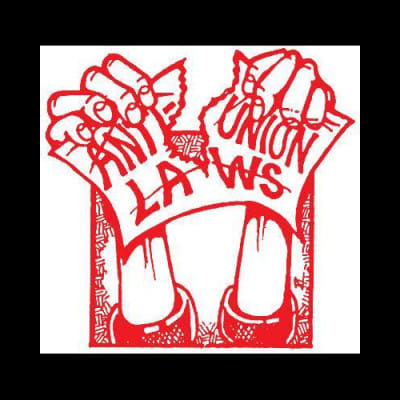You can't pass a donkey as a horse!

AT the risk of sounding "anti-growth" and "anti-exports" – and heck, of damaging the "image" of the country (because, apparently, every criticism of the garments sector, no matter how constructive, is just a grand plot to destabilise our economy)– let's first acknowledge what the proposed Bangladesh EPZ Labour Law 2016 does not do. It does not provide trade union rights to workers, despite what we are made to believe. It does not make collective bargaining appreciably easier for workers. It does not provide the same protection to workers employed inside the Export Processing Zones (EPZs) as to those outside it – not by a long shot.
What the new draft does do is give the illusion that workers have now been granted that ever-so-elusive freedom of association, to eye-wash western trading partners and international labour and human rights organisations who have raised a hue and cry about the unsatisfactory labour rights scenario in our export processing zones, particularly the US, which suspended the GSP privilege to Bangladesh in June 2013, citing the lack of freedom of association as one of the reasons for their withdrawal. The bill further confirms that workers in the EPZ are to be isolated from workers in the rest of the country, to be governed by a completely different set of rules.
Although we are yet to receive a copy of the draft and read the fine details, we can deduce from the perplexing statements of our cabinet members that the draft would, rather than allow trade unions, authorise the workers' welfare associations (WVAs) to bargain for the workers' rights as per the stipulations of the bill. Apparently, the distinction between trade unions and these welfare associations is in name only, as argued by our cabinet secretary. Which leaves us with the obvious question: if the difference is only in name, why is there such incredible reluctance to call these associations trade unions? Who exactly are we trying to fool?
According to the Bangladesh EPZ Act 2010, trade unions are not allowed in EPZs. For the government of Bangladesh, the question of trade unions has been a double-edged sword, risking as it does, one hand, foreign investment from the EPZ if this provision is amended and, on the other, incurring harsh criticism of labour activists both at home and abroad. Following the suspension of the GSP privilege and outcries for major reforms post-Rana Plaza in 2013, the government decided in 2014 that it would allow "limited trade union rights" to the workers in the EPZ in the form of WWAs. At the time, the commerce minister argued that the WWAs would function as Collective Bargaining Agents (CBAs) in the EPZ. He even claimed that the WWAs in 217 factories inside EPZs have been functioning as CBAs (TDS, Oct 2014). From recent reports, we are to assume that the WWAs, which had no legal status before, can now serve as CBAs. But doesn't this claim sound exactly the same as the one made by the minister in 2014? We are at a loss to understand, then, what new status has been bestowed upon the associations through the draft, except to make the formation of the associations and selection process of the leaders more complex, and unionising more difficult, bureaucratic and inaccessible to the general worker. The draft states that at least 30 percent of workers need to be mobilised before a WWA can be formed, which is an unreasonably high number if you consider big factories with over 10,000 workers. The provision that a representative must have the support of 50 percent workers also seems equally onerous and unnecessary.
Labour activists in the country have long highlighted the ineffectiveness of workers' associations in upholding workers' interests, with a majority controlled by the owners in one form or another. Workers who are seen as threats to the establishment are pressurised to conform to the management's position and/or eventually fired, in violation of their right to mobilise and bargain without fear, claim labour leaders. If these allegations against WWAs are true - if owners can and do exert undue pressure on the associations - then giving them collective bargaining power in paper only would not make a noticeable difference to the plight of the workers.
Furthermore, the very idea that EPZ workers would remain outside the purview of the labour laws of the country and be dictated by a completely separate set of rules, rather than allay concerns, raises grave questions about the motives for doing so. Have we forgotten that workers in the EPZ are as much citizens of this country as workers in other sectors, entitled to the same inalienable rights? Or are we, through this bill, reasserting the fact that we are willing to compromise with workers' rights in the EPZs – violating constitutional guarantees, mind you, in addition to ILO conventions – in our unquenchable thirst for export and economic growth?
It is embarrassing for us that successive democratic regimes have failed to uphold even the most basic provisions of the ILO Conventions that Bangladesh has ratified¬¬-- 35 Conventions in total, of which 33 are currently in force. Of these, ILO Conventions 87 and 98 guarantee freedom of association and collective bargaining, making us legally obligated to protect the rights of workers as stipulated by these international treaties.
Constrained as it may be, it is high time that the government reconsiders whether it is worth allowing substandard labour practices in a crucial economic sector for fear that better work conditions and trade unions will hamper foreign investment. But wouldn't a healthy and happy workforce -- that can negotiate with owners for better work conditions in a civil manner -- only make us more competitive in a world market that has, of late, penalised us for our systematic violations of workers' rights? The government must make consistent efforts to convince our investors that the freedom of association does not automatically mean disruption in the production process and increasing costs, that if there is a system in place to address grievances, workers are less likely to resort to extreme measures, that enabling democratic participation of the workforce and ensuring a healthy work environment can actually benefit the businesses by making them more efficient and cost-effective. At a time when more and more consumers around the world are asking where their clothes are made and under what conditions, perhaps the time has come for us to try to compete in the global market by demonstrating that we have the best labour practices, not that we have the worst.
With all due respect, may we remind the national-powers-that-be [who may or may not be] eager to appease the foreign powers-to-be that the latter have thus far been unmoved by cosmetic reforms in the sector? Whatever the motive of the foreign donors may be – and I, for one, remain sceptical of western nations' real commitment to workers' rights, given their complicity in the workings of global capital – we cannot take the moral high-ground as long as we continue to put big businesses' interest over that of our workers. The fact that we remain so scared of trade unions, and so resistant to granting our workers the freedom to associate and bargain, is proof of how much further we need to go before we can claim that we, as a sector and as a nation, are committed to protecting our workers.
The writer is an activist and journalist.

 For all latest news, follow The Daily Star's Google News channel.
For all latest news, follow The Daily Star's Google News channel. 



Comments